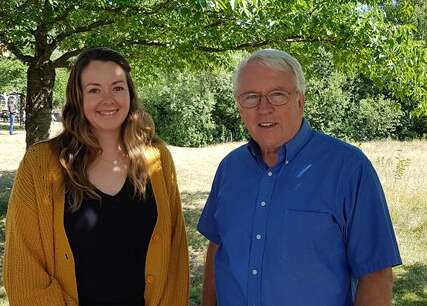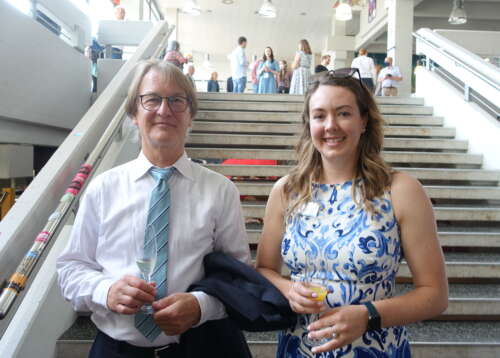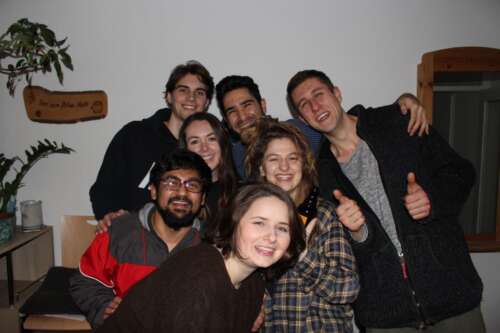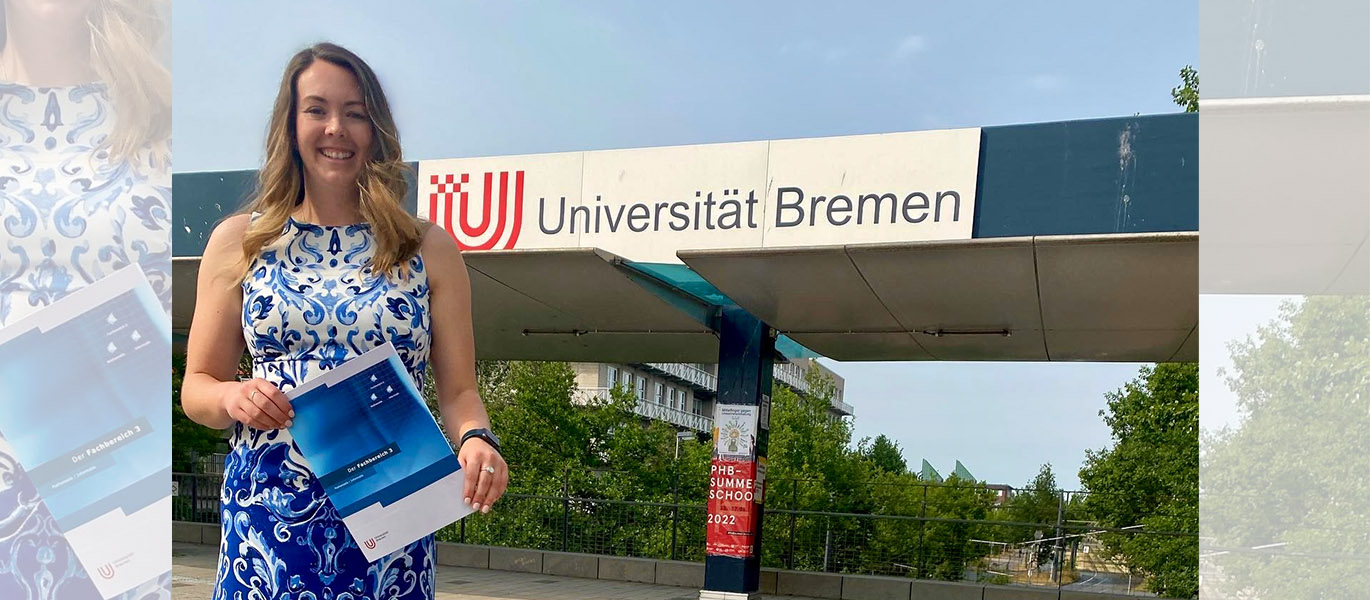Dr. Becky Breau had never planned to pursue a PhD, but the University of Guelph student found that after her master’s program, her research in human health and nutritional sciences felt incomplete.

Through discussion with her academic advisers, Breau learned of a new U of G initiative called the cotutelle doctorate. The arrangement allows PhD students to study in a custom program at a university in a country of their choosing. After defending one dissertation, students are awarded two degrees.
Cotutelle – a French term that loosely translates to “joint enrolment” – is an arrangement headed by the Office of International Strategy and Partnerships and facilitated by Dr. Donald Bruce, professor in the School of Languages and Literatures in the College of Arts.
“The idea of completing a PhD and having the opportunity to move to Germany for a year seemed too good to turn down,” Breau said. “In academia in general, having more connections is equal to more success. Knowing people all over the world is a huge advantage.”
It was at the University of Bremen that Breau found herself researching the relationships among physical activity and motor abilities, physical fitness and cognitive function in young children, while also taking German classes. Supervised by Dr. Wolfgang Ahrens and Dr. Mirko Brandes, Breau spent a total of 12 months at the Leibniz Institute for Prevention Research and Epidemiology (BIPS), one of Germany’s oldest epidemiological institutes.
The advantage of a U of G double doctorate
At BIPS, Breau was granted access to comprehensive data sets from across Europe to which she could apply methodologies explored in her work with the Guelph Family Health Study, a project still relatively young in comparison to the German institute.

“It definitely influenced where I went with my work,” she said. The data allowed Breau to shift her focus and look at broader health-related concepts in physical activity and how those changed over time.
“They’re still collecting that data in Guelph,” she said, “so I never would have had that opportunity.”
A double doctorate can take longer than a traditional approach, Breau said, but does not translate to double the work. Instead, she said, gaining twice the number of opinions and double the amount of knowledge and expertise in her research presented a significant advantage. Along with Ahrens, Breau’s U of G adviser was Dr. Lori Ann Vallis, professor in the Department of Human Health and Nutritional Sciences.
The social perks of studying in Europe, with exposure to an array of cultures, were invaluable, said Breau.
Living in an international flat with seven others from five different countries, Breau practised the German language, built personal and professional relationships, and created a home base from which she travelled across Europe.
Shared values, philosophy connect Bremen and Guelph universities
“In the modern world, knowledge is international,” said Bruce, U of G’s cotutelle facilitator. “To travel, to study abroad, it opens the doors. It doesn’t matter where you go.”

The city of Bremen, on the Weser River in northwest Germany, is a progressive one like Guelph, he said. The universities share similar values, with both institutions recognized for scientific disciplines and founded on an ethos of social justice in the 1960s, a time of cultural and political upheaval.
Bruce had established contacts with Bremen many years before the first cotutelle arrangement. The relationship also includes an ongoing speaker series, next slated for an in-person return in October.
However, students interested in a cotutelle doctorate are not limited to Bremen and can choose to study wherever they wish, as long as agreements are established with the partner university.
“We could do it anywhere,” he said of the arrangement. “We just have to set up the connections.”
International exchange at U of G expanding
Bruce credits U of G president Dr. Charlotte Yates with investing in the Office of International Strategy and Partnerships, a long-needed component in U of G’s international strategy. The goal now, he said, is to spread the word to ensure everyone, from the University’s administration to faculty and students, is versed in international exchange. “It’s moving in the right direction.”
Bruce said Breau’s achievement is symbolic, as she is the first U of G student to complete a cotutelle doctorate with Bremen, including living abroad, gathering expertise and establishing international contacts – “everything you need to be successful,” he said.
Breau concurs.
“This experience can be challenging,” she said, adding that “the more you experience different countries and cultures, the broader you’ll be able to think about anything you do in life.”
Contact:
Dr. Donald Bruce
don.bruce@uoguelph.ca
